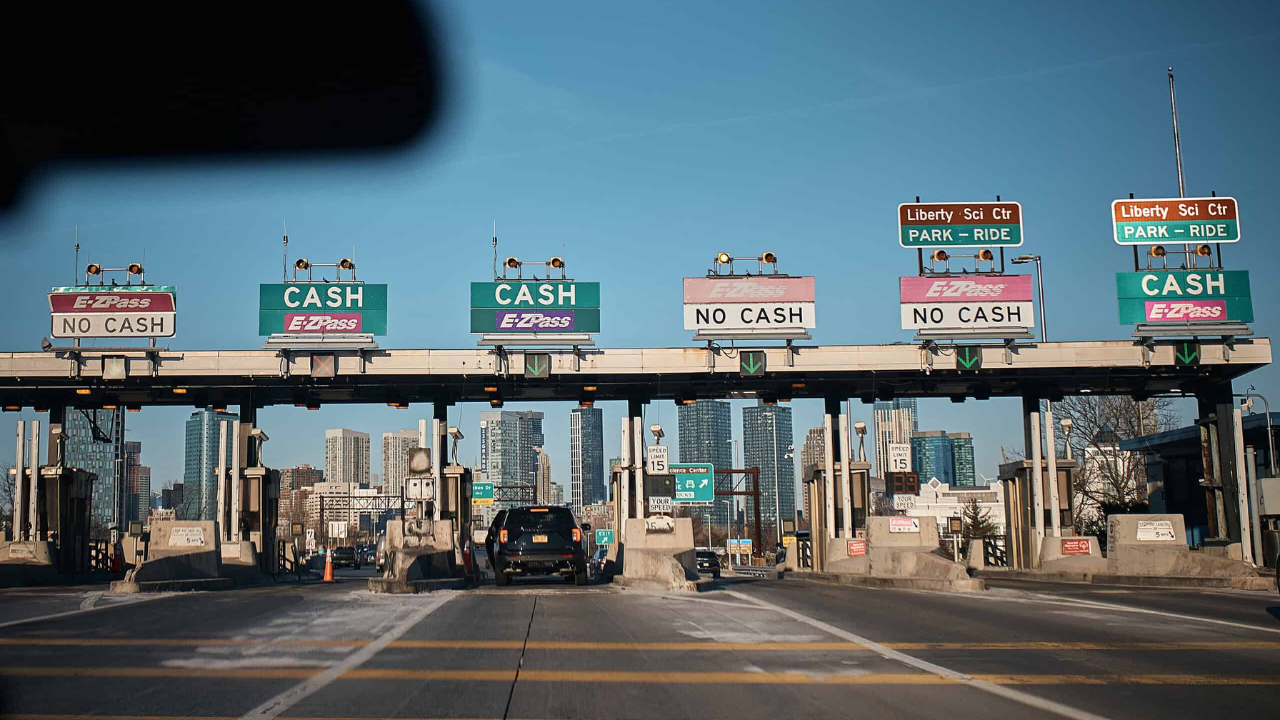The New Jersey Turnpike Authority (NJTA) has approved a controversial $1.73 billion contract with TransCore, a company owned by Singapore Technologies Engineering (ST Engineering), which has raised concerns over its alleged links to China. The deal, which will manage New Jersey’s E-ZPass system for the next several years, has been met with strong opposition from some lawmakers, who are worried about the security of driver data and potential foreign influence.
E-ZPass Deal Under Scrutiny
The $1.7 billion contract is one of the largest ever awarded by the NJTA. It covers the management of the state’s E-ZPass system, which processes over 60 million transactions annually, giving TransCore significant control over the state’s toll collection infrastructure. TransCore, a leading player in electronic tolling systems, is owned by Singapore Technologies Engineering, a firm controlled by Temasek Holdings, a government investment company in Singapore.
The controversy centers around the company’s former board member, Fu Chengyu, who has known affiliations with the Chinese Communist Party (CCP). Critics argue that this connection raises national security concerns, especially given the sensitive nature of the data involved, such as toll payment information and driver locations.
Opposition and Concerns
The contract was awarded after a competitive bidding process. However, Conduent, the current operator of New Jersey’s E-ZPass system, challenged the decision, pointing out that their bid was approximately $250 million lower than TransCore’s. Conduent officials have voiced strong objections, claiming that allowing a company with potential Chinese ties to manage critical infrastructure like E-ZPass could jeopardize American citizens’ privacy.
Lawmakers, including Rep. Josh Gottheimer, have also raised concerns. In a statement, Gottheimer emphasized that the awarding of such a significant contract to a company with possible ties to China could compromise the safety of New Jersey’s citizens and their sensitive data. He has called for further investigation and scrutiny of the deal, especially as it relates to protecting private information from foreign access.
Gottheimer also argued that this move could be seen as more significant than the concerns over apps like TikTok, citing the scope and impact of the E-ZPass system on millions of drivers in the state.
Security Assurances from NJTA
Despite the backlash, the New Jersey Turnpike Authority has defended the decision. NJTA officials assert that TransCore is fully compliant with U.S. data security laws and has implemented the necessary safeguards to ensure the protection of driver data. They emphasized that the company has been thoroughly vetted and that there are stringent measures in place to prevent any unauthorized access to sensitive information.
The NJTA has also clarified that the contract’s terms are in line with national security standards, including provisions to prevent foreign influence in the operation of critical systems. NJTA executives are confident that this partnership will help improve the efficiency and security of the state’s toll collection system.
A Larger Debate on Data Privacy
This contract has ignited a wider debate across the nation about the growing influence of foreign companies in critical U.S. infrastructure. With the global rise of tech companies from countries like China and Russia, questions have been raised about the security risks of allowing such firms to handle sensitive data on American soil.
Opponents of the contract argue that this deal could serve as a precedent for further foreign involvement in U.S. infrastructure projects, which could pose long-term risks to national security. They urge lawmakers to pass stricter legislation that would require more transparency and greater oversight of such agreements, particularly those that deal with data security and personal privacy.
Impact on New Jersey’s Toll System
The decision to move forward with the TransCore deal is significant not only because of the security concerns but also due to the scope of the contract. The E-ZPass system is integral to New Jersey’s toll collection, which generates millions of dollars annually. The system’s efficiency is vital to maintaining the state’s transportation infrastructure.
TransCore’s involvement in managing this massive network could bring improvements in efficiency and technology, according to supporters. The company has a history of implementing advanced tolling systems, which could lead to faster transactions and better integration with other tolling systems across the country.
However, critics remain wary of the long-term implications, particularly as the issue of foreign involvement in U.S. infrastructure projects continues to be a point of contention. The contract’s approval marks a turning point in the debate over how much foreign influence is acceptable in vital American systems.
Government and Legal Oversight
In the wake of these concerns, lawmakers are calling for stronger government oversight of the contract. They have urged agencies like the Department of Homeland Security (DHS) and the Federal Trade Commission (FTC) to take a closer look at the deal and its potential implications for data privacy and national security. These agencies are responsible for monitoring foreign influence on critical infrastructure and ensuring that private data is protected.
Lawmakers have also pushed for greater transparency in the bidding process for such large-scale contracts. They argue that the American public deserves to know more about who is managing their data, especially when that information is being handled by companies with international ties.
The Path Forward
The New Jersey Turnpike Authority’s approval of the TransCore deal is a major development in the ongoing debate about foreign involvement in American infrastructure. As the contract moves forward, it will likely continue to be scrutinized by lawmakers, privacy advocates, and security experts.


